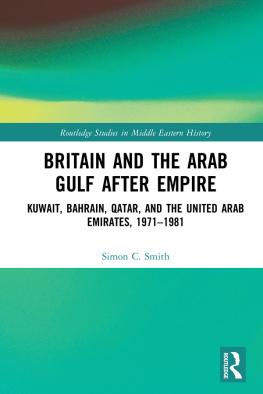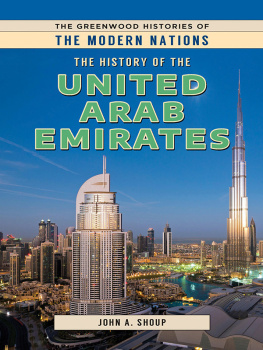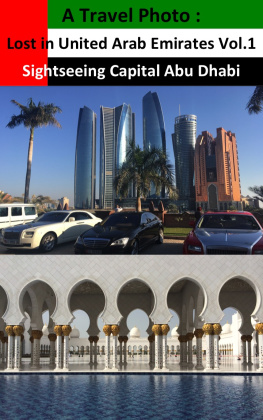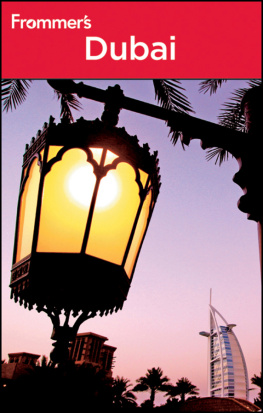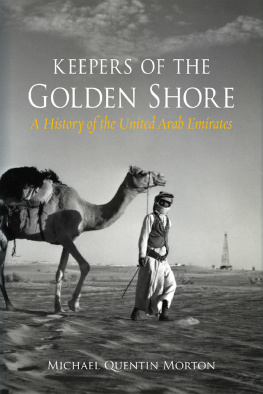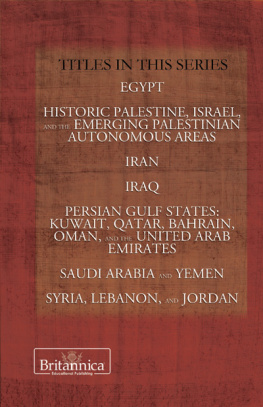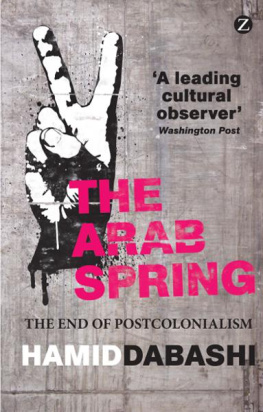Folklore and Folklife in the United Arab Emirates
CULTURE AND CIVILIZATION IN THE MIDDLE EAST
Series Editor
Ian R. Netton
University of Leeds
This series studies the Middle East through the twin foci of its diverse cultures and civilisations. Comprising original monographs as well as scholarly surveys, it covers topics in the fields of Middle Eastern literature, archaeology, law, history, philosophy, science, folklore, art, architecture and language. While there is a plurality of views, the series presents serious scholarship in a lucid and stimulating fashion.
Folklore and Folklife in the United Arab Emirates
Sayyid H. Hurreiz
First Published in 2002
by RoutledgeCurzon
Published 2013 by Routledge
2 Park Square, Milton Park, Abingdon, Oxon OX14 4RN
Simultaneously published in the USA and Canada
by Routledge
711 Third Avenue, New York, NY, 10017, USA
Routledge is an imprint of the Taylor & Francis Group, an informa business
2002 Sayyid H. Hurreiz
Typeset in Baskerville by LaserScript Ltd, Mitcham, Surrey
All rights reserved. No part of this book may be reprinted or reproduced or utilised in any form or by any electronic, mechanical, or other means, now known or hereafter invented, including photocopying and recording, or in any information storage or retrieval system, without permission in writing from the publishers.
British Library Cataloguing in Publication Data
A catalogue record of this book is available from the British Library
Library of Congress Cataloguing in Publication Data
A catalogue record for this book has been requested
ISBN 13: 978-0-700-71413-1 (hbk)
ISBN 13: 978-0-415-61639-3 (pbk)
This work is dedicated to my wife Asia
and our daughter Dalia
for their encouragement and constant support
. Map of the UAE
. Black-on-grey pottery ware indicating earlier contacts with Iran and Baluchistan
. Poets Council session attended by HH the President of UAE who is a recognized nabai poet
. Flowering armal (Rhazya Stricta Decne)
. Boat-building in the UAE
F olklore of the UAE is very rich and colourful. No single study can cover all the domains and genres of UAE folklore, let alone the totality of its folklife. This study provides a broad analytical survey of folklore and folklife in traditional UAE Society. It also examines the role and relevance of folklore in the contemporary and modern setting while focusing on its use in private and public life, as well as in political and socio-economic sectors.
The study is a result of my experience in the UAE during the last decade of the twentieth century, a period which was turbulent politically and socially, not only in the UAE, but within the whole Gulf Region. Personal and academic interests, together with a physical and intellectual presence in a very interesting area, witnessing significant socio-economic and cultural changes, enabled me to observe, note and register useful information pertaining to folklore and folklife.
My work at the UAE University, which was mainly concerned with teaching and research in the closely related areas of sociology, anthropology and folklore, provided a useful venue for interaction with colleagues and students. It also presented a challenge which necessitated acquiring further knowledge about UAE culture and society. In addition, due to the fact that there are very few trained folklorists in the UAE, I found myself either directly or indirectly involved in conferences, seminars and workshops dealing with the collection and study of folklore in various emirates. This experience resulted in a large amount of literature, field-collected data and first-hand information, part of which is used in the present study. I felt obliged to share such information with my colleagues, students and interested folklorists in the UAE and elsewhere.
Two factors have encouraged me to publish this study in English. First, there are almost no academic works about UAE folklore written in English. Whereas, notable scholarly works about UAE archaeology, history and political science written in English have appeared during the last ten years, similar publications about folklore are non-existent. However, a number of attractive books have been published in English during the last few years. The contribution and impact of those books cannot be overlooked. Secondly, the unique experience of the UAE with regard to the personal attention and financial support of its political leaders to folklore and cultural heritage, deserves to be broadly and extensively publicized. In this way, a wide readership outside, as well as within Arab countries, will benefit from UAE folklore and folklore scholarship in general.
Sayyid Hamid Hurreiz
N umerous institutions and individuals have contributed directly or indirectly to the successful completion of this work. Various colleagues, friends and students have helped in shaping the ideas presented in this study in different ways and capacities. If I began to mention specific names, the list would be extremely long. In addition, I fear there would be inadvertent omissions.
This work, however, would not have been accomplished without the assistance rendered by certain ministries and institutions. I therefore express my gratitude and indebtedness to the United Arab Emirates University, the Ministry of Information and Culture and the Ministry of Labour and Social Affairs.
I benefited from a number of works published by the Department of Archaeology and Tourism, as well as from other works on the UAE published by Trident Press. Accordingly, I acknowledge their valuable contribution. I also wish to thank Prof. Ian Netton and Curzon Press for their confidence and co-operation.
TRANSLITERATION
The following system is used in the transliteration of Arabic characters.
Other vowels used in UAE Arabic
o as in English old and UAE Arabic gom
e as in English gate and UAE Arabic lela
Certain names like Zayed, Ali, Abu Dhabi, Dubai, etc. that have constantly appeared in print with a specific spelling, maintain the same spelling in this study without any additional diacritics.
ABBREVIATIONS
UAE | is used as an abbreviation for the United Arab Emirates. |
saaws | is used as an abbreviation for alla allahu alayhi wa sallam (May Allahs prayers and peace be upon him). It is added after the name of Prophet Muhammad |










